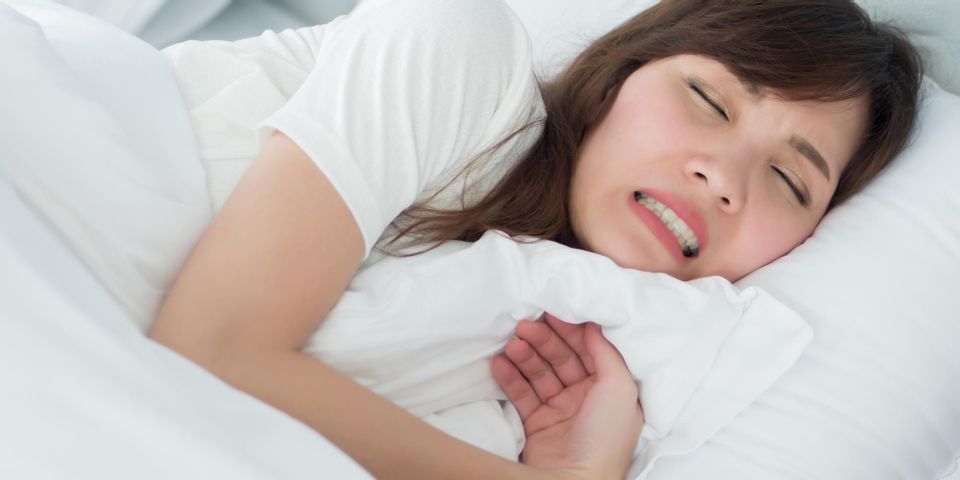
Orally Speaking
Clenching and Grinding
Except for poor oral hygiene, the worst destruction that could happen to your teeth will be if you develop a grinding (bruxism) or worse, a clenching habit.
People usually grind their teeth at night during sleep. This can be caused by many conditions. Anxiety, an abnormal bite, missing or crooked teeth, and sleep apnea.
Due to the fact that grinding, and clenching occur during sleep it is usually disclosed by the loved one who hears the grinding at night. A dull, constant headache or sore jaw upon wakening is a major sign of bruxism. If you believe that you may be grinding your teeth, see your dentist. They can examine your jaw and mouth for signs of bruxism such as jaw tenderness and excessive wear on the teeth.
In many cases untreated bruxism can result in recession of gums, loosening of teeth, breaking of teeth and loss of teeth. When this occurs, your existing dental work can also be severely damaged. Fillings, crowns, veneers, implants, root canals can be damaged beyond repair. Chronic grinding can even wear natural teeth down to stumps making them useless. Usually the only options the dentist has is to restore the patient is fabrication of a partial denture, or worse a complete full denture.
Our teeth touch around 2,000 times a day due to talking and eating. This is a light touch. Whenever an excessively hard bite takes place or a clench, the forces placed on the teeth are enormous. Without treatment this can lead to fracturing and breaking of the dentition, not to mention the intense pain and treatment costs. No matter how the restorative dentist reconstructs the mouth, if the clenching habit is not alleviated nothing is going to last any significant time.
One of the major ways to decrease or even stop a bruxing or clenching habit is with the use of Botox. The Botox for TMJ and bruxism is exactly the same that is being used by med spas all over the country for the smoothing of wrinkles and has been used in medicine for over forty years. The Botox acts as a “dimmer switch’ on the muscles we use to chew with. It does not shut down the muscle; it just makes the grind or the clench less intense. With the use of Botox, the habit can be decreased to the point that it is so light it is insignificant, and in a lot of cases completely stops the habit by re-training the muscles not to work as hard.
Orally yours,
Richard N. Leverett DMD, LLC
Elberta Dental
24851 State Street #7
Elberta, Alabama 36530
251.986.3500
About the Business
Have a question? Ask the experts!
Send your question

